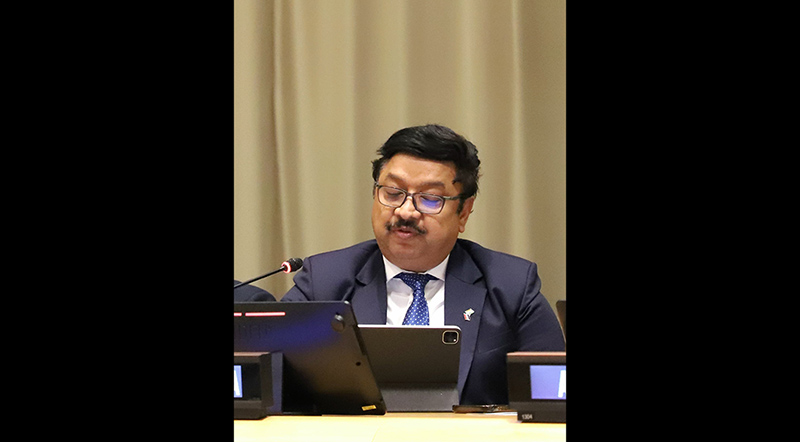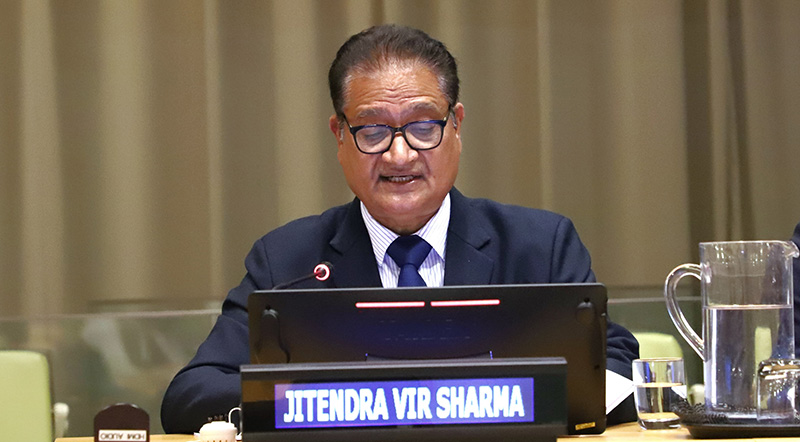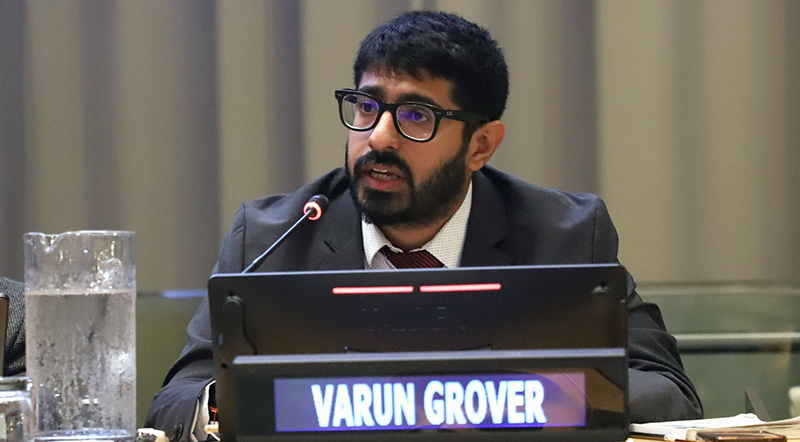Restoring Degraded Forest Landscapes: India's Approach to Sustainable Forest Management and Climate Resilience

TERI and MOEFCC jointly organised a side event at the 20th session of the UN Forum on Forests on 6th May 2025, which is being held at the United Nations Headquarters, New York, United States, from 5-9 May 2025. The topic of the event was "Restoring Degraded Forest Landscapes: India's Approach to Sustainable Forest Management and Climate Resilience".
This side event focused on India’s strategies for sustainable forest management, restoring degraded forest landscapes, and climate resilience. The UN Forum on Forests is a functional commission of the UN Economic and Social Council (ECOSOC) with universal membership. The main objective of the Forum is to promote “the management, conservation and sustainable development of all types of forests and to strengthen long-term political commitment.
Dr. JV Sharma, Senior Director, TERI introduced the theme of the session. He highlighted that, India, through its strong policy and regulatory framework, is advancing sustainable forest management and climate resilience by restoring degraded forest landscapes. He was followed by Mr Sushil Kumar Awasthi, Director General of Forests and Special Secretary, Ministry of Environment, Forest and Climate Change (MoEF&CC), who spoke on the Overview of Sustainable Development of Forests in India, where he outlines India’s comprehensive approach to sustainable forest development and restoration, highlighting the achievement of 25.17 per cent forest and tree cover along with being the country to have the third-highest in net forest area gain globally (2010–2020). Mr Ramesh Kumar Pandey, Additional Director General of Forests, MoEFC&CC, emphasised on the robust Policy and Regulatory Frameworks in India to Combat Forest Conservation, Degradation and Restoration. Mr Anoop Singh, Director General, Forest Survey of India, MoEFC&CC, stated that India is open to share, support and collaborate with other countries and stakeholders on Forest Inventorisation and other technological tools and techniques. Read the full report here: https://fsi.nic.in/forest-report-2023
The topic of India’s Approach on Restoring Degraded Forest lands was taken by Mr R Raghu Prasad, Inspector General of Forests, MoEF&CC. He highlighted the progress and approaches of India on Restoring Degraded Forest lands. As per a joint study by MoEF&CC and Indian Space Research Organisation (ISRO), in India about 30 per cent of the country’s land is affected by degradation
Reemphasising the fact that India is committed to and on the right pathway to achieve its NDC goals was highlighted by Mr Varun Grover, Associate Fellow, TERI. India’s forestry NDC target is to create by 2030 an additional carbon sink of 2.5 to 3 billion tonnes of CO2 eq. through additional forest and tree cover. With 2005 as the baseline year India has already reached 2.29 billion tonnes of additional carbon sink.
Dr Dipankar Saharia, Senior Director, TERI, touched upon the contribution of India’s forestry towards sustainable livelihoods of forest dependent communities. He mentioned that India’s forests support the livelihoods of around 300 million people, particularly in the 26 per cent of forest and forest fringe villages.
The event concluded with a brief panel discussion and questions from the audience. Mr Amit Anand, Deputy Inspector General of Forests, MoEF&CC, Government of India, delivered thanked the audience for a patient listening, those who joined in-person and the ones who joined online; the organisers, the UNFF Secretariat, Permanent Representatives of India to the United Nations in making the event a success. He reinstated that India is committed to Sustainable Forest Management, Restoring Degraded Lands and ensuring community participation is maximised in all these initiatives.
The session can be watched here: https://webtv.un.org/en/asset/k1d/k1d1lpmdkd



